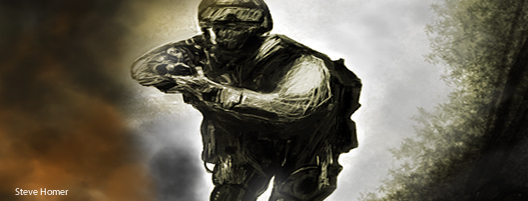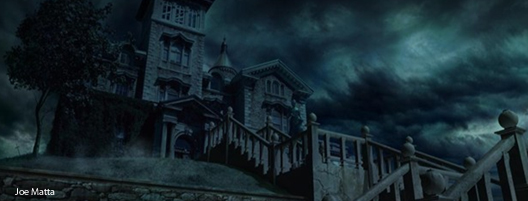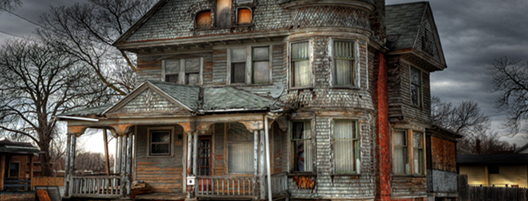Friendly Game
By Enrique Ferrer-Corredor*
<<<<<<<<<<<<<<<<<<<<<<<<<<<<<<<<Click aquí para leer el artículo en español>
for Maribel Vergara,
my dreams come true…
I remember the neighborhood houses of my childhood across the back part of the wide plots of land along a creek; I remember the walls without plaster, the aerial pipes always reformed, the debris accumulated after endless arrangements of bricklaying; also they made endless rooms additions when the family grew. I have forgotten many things and others remain like a photograph, detained in their present.
Two pursue me in my nights of nightmare, the rats patrolling the creek and a hole in a wall belonging to nobody. The rats were of great size, they dragged the metal traps with sharp edges and climbed their bulks along the walls and disappeared among the broken pipes, among the cracks in the walls and the weeds; a small cat would be afraid of them. We had made a hole in the wall, it was a hole only toward the outside, therefore we closed it when we wanted with a barrel filled with bricks and broken concrete blocks; from there we looked from time to time toward a creek, the view interested us since the nearly perpendicular slope made the land useless for our adolescent games.
Between the land plots and the creek there were improvised walls, tiles piled among wire nettings with pieces of wood used as wedges. Each family had rules about using the land plots and the common area of the creek, our space to play every evening ended in the land plot, some already with the look of the adults, already by carelessness, we went through this border and arrived at the creek; this crossed the city channeled to here, foul among the houses there, like in our block.
We had implemented a communication system among the land plots, with clotheslines, with the new television cables, with other cables and wires; they were cords strung with great patience to send us papers messages, to play long distance guessing games, we even exchanged light objects on this mail of the creek. It served to evade punishments, the obligated confinement and even the fear of the can and of the rodents. We told stories, we got our first girlfriends through the correspondence between high and low houses, from one side to another of the neighborhood.
We learned to explore the zone enclosed by the river sewer, the space was isolated from strangers since the gigantic and irregular block was enclosed by our houses. The two rows of houses was closed at one end with a wall, and from the opposite side, the creek came submerged before running in the midst of our homes. To avoid the incursion of intruders a wall was built on the only accessible place, from the other side the emptiness and the fall of the water protected us. There we opened a very small hole, only a boy of our age fit through it with difficulty, then we covered it with a barrel filled with discarded construction materials; when it was full it was impossible to move.

Someone thought about the small waterfall as the creek moved away from the block, it was a fall of three meters, may be five; to us it seemed like a precipice, our world ended very quickly on the fenced land plots and the school three streets away. I insisted on making boats and letting them fall so I could take pictures, we had fun all afternoon until the idea of taking them as they fell down the waterfall and letting them loose in the course of the river. We had to empty the barrel and we needed even several of us to move it, the space in the wall barely allowed one to put one’s head through, the most daring walked along the edge of the canal holding on the bricks. On the other side the canal with its stinking water opened up to double its width, the fall was at least five meters, it was almost impossible to access our territory from the other side. The creek flowed under a strip of concrete and continued descending in a short distance and then continued open among the weeds until losing itself in the almost depopulated horizon of the city and enclosed among trees lying in wait. The current became more rapid and the volume of the river reminded us of our trips to the eastern plains. So, we put the ships sometimes of paper, sometimes made with boards from fruit boxes and we tempered their sails with old flannel rags, we even came to throw plastic ships that were very expensive for us, battery-powered ones were a privilege of holiday treat.
That afternoon our Christmas gifts had aged, from the firemen’s trucks we moved on to more sophisticated things, I got my first camera when I was eleven, we had taken several portraits all afternoon from side to side of the creek and we wanted to take pictures of the dusk and even more, we threw a boat into the water and ran up to the hole to see it fall and take pictures with the night already there, the light went folding up the afternoon and we needed the flash’s help, we all felt like experts.

Then upon looking over the wall, I found a terrifying image and it still is tattooed today in my memory: Behind some weak thickets there was a black truck with a red tent, some men in camouflage and boots were pushing three silhouettes that appeared to be men, they made them run and make a game of shooting at their feet, the noise of the shots completed the scene in the middle of the first shadows. Their always-joined hands confused me between a plea for mercy and their condition as prisoners. Tired of the simulation, their captors struck them and dragged them by their hair. The night surprised us, turning our heads while we lost one of our boats in the horizon, just in the path of the shadows of our shapeless visitors; we took the last three pictures with the almost faded sun and with the flash our innocent adolescence recorded the ignorance, we found ourselves with the unofficial story awakened with our farewell to childhood. I felt a strange sensation when I heard the roll being rewound, that fact distracted me, I removed it and put it in the front pocket of my pants.
And in an instant the bodies of the men already with the evident attire of our toy soldiers, climbed the edges of the canal until the height of our play window, we didn’t understand until they were very close to the wall, cleverly we covered the careless orifice with the bin and quickly put the waste material inside, then we ran for the foul slope, some passed the wooden bridges toward their lands, others more experienced, perhaps more ignorant, were retreating while discovering the situation. And soon we were surprised by the image of a camouflaged man already on top of the wall and on the verge of falling inside the enclosed zone of the neighborhood, other camouflaged men defiantly raised their heads over the edge of the wall and I discovered late my mark, the camera hung from my neck and the soldier didn’t hesitate in cutting off my entrance to the land of my house, I reached the bridge and I avoided him on the other side by edge jumping between thickets and familiar fences, I sensed in my flight the cause of the armed invasion to our game territory, so I took out the roll from my pocket, with the camouflaged man on the verge of discovering me. I took out my water bottle with carrot and orange juice for the evening that I had hidden in a booth for the neighborhood’s gas. I emptied its contents and put the roll inside the bottle and quickly closed the lid on it, and threw it in a lateral spout that fed the main pipe.
I sat down to breathe out the exhaustion in order to disguise my fear. The camouflaged man had followed the route to my hideout, he was agitated and furious, he berated me, he took my camera. He searched with anguish inside the camera and he didn’t separate his eyes from the distance to the wall and the surrounding areas already populated by eyes and whistles, he did not stop investigating the iron gates of the land plots and then he asked me for the roll, I lied with the security of not yet having left childhood; we did not have a roll, I said with defiant confidence. He threatened to seize the camera, I shouted and clung to the cord, I exploded in tear and laughter; we were only playing with the automatic flash, we don’t have money for sodas much less for rolls of film. I started to shout and the cords started to cross from side to side from the houses with baskets, papers, bells; we also heard whistles, the first mothers showed their heads, the dogs didn’t stop barking, it was a forceful artillery attack.
A few days later, I asked my mother about camouflaged men, and she said: –“Real soldiers do not do that”–. She usually didn’t like to talk about politics. Today I have my own digital camera and also a distinct way of revealing my past; the memory has stopped being a sunny image of the creek of my childhood in the middle of childlike play and our mockery of some camouflaged men whom we conquered with our labyrinths; that day finished like an unpublished game, I did not know then how much this fact would mark my life.

We only remember in the distance, the memory of the camouflaged man climbing the wall is not removed from my daily hours, the pressure of his fingers on my forearm, of his eyes investigating mine and guiding his hands into my pockets; the fear was somewhere else, we only thought about our parents and on the retaliations our guilt was domestic, and the camouflaged men barely a variation of some game, a scene still vivid in Saturday movies. The accusation in the house wore us down, before the authority of the parents whose rank was comparable to the camouflaged men, we were kids and we were protected by the communication system of the cables, by the neighborhood dogs, by many windows open to the river and by innocence. Many days later, at my insistence, my mother said again: –”They were not soldiers, anybody could have done it” –. The true takes from our territory occurred with distance, upon returning that afternoon and trying to develop the pictures by memory, I ignored the essence of the facts and the permanence of its registration in the water bottle; although in my conscience the image becomes more clear with the years, it rises since the present is anchored in the past. It could be a fact isolated from lesson, there was a lot of thugs in the neighborhood, but it stayed in my childhood album like an alphabet.
Many years later, when I returned to town, I asked my mother again about the men in camouflage, I had heard and read many versions from the capital, the raids became frequent when the coca began to run through the river, and she said: – “They were not soldiers”–. Her words had not changed over the years, nor her fear of talking about politics. And just then, after many years of silence, my Grandpa muttered, from one corner of the kitchen, from his wheelchair and from its illustrated darkness: –“First, the army rounded up the thugs, supported local police and recruited guys; then, the guerrillas took control, made lists, wanted to bring their laws, sometimes recruited guys too; later, when the Paracos and the mafia arrived with their gangs, they decided to clean up the town, they paid more to their recruited boys”–. Grandpa said, spinning his words. – “For many years the mafia has controlled everything around here, your memory should renew the picture of those times, either one of them could come up in camouflage.”
The camouflaged man had to release my camera and he barely had enough time to climb the wall, all of his rearguard also withdrew from the battlefield, we all saw the water bottle fall to the river and get lost under the strip of cement, someone will find the pictures of this story one day. I ignore today that impulse to hide the roll from the camouflaged man, they were my pictures and I sensed their guilt, childhood prevents us from rendering accounts. I have not been able to separate myself from the childhood image switched with my adult years, they don’t erase those men moored among the bushes, the dead people in the trash stopped for a time. Soon the city devoured the landscape behind the wall, today the bushes remain more to the south and the dead people descend under the great river.
Note: I appreciate the advice and help from professor Elaine Miller for this English version, also her invitation to share this story with her students at CNU, Newport News, Virginia.
*Translated by the author from the book El Público en Escena
_____________
*Enrique Ferrer-Corredor. Colombo–venezolano nacido en 1963, con gran trayectoria académica, divide su tiempo entre la literatura, la economía, la ciencia política y su afición al fútbol rojo. Realizó una maestría en Lingüística y Literatura y acaba de terminar un doctorado en Literatura y lingüística en España. Ha sido profesor de las universidades: Pedagógica Nacional, Externado de Colombia y la Escuela Colombiana de Ingeniería. Igualmente en universidades de EEUU, en Virginia, en Hampton University y en el College William & Mary. Hizo la cátedra de poesía hispanoamericana en el Instituto Caro y Cuervo. Con «La otra muerte de Salazar» obtuvo el segundo puesto en el concurso de Cuento Ciudad de Florencia. Viajero incansable y colaborador de diversas publicaciones nacionales e internacionales, entre las cuales destacamos El Sueño de Samsa y Común Presencia. Fundador y director de Papeles… Perteneció a los talleres de escritores de la Universidad Central en Colombia y Zaranda en Venezuela. Ceniza de luna, su primer poemario, fue publicado en 1994 y tuvo dos ediciones más en 1998. Su libro de cuentos El público en escena (Colección Los Conjurados, 2005) es testimonio de su incansable rigurosidad.


He leído este cuento en español y ahora lo puedo disfrutar en ingles tambien. This is a very perceptive and well-written work. Thank you, Enrique. Bravo!
I enjoyed reading this short story from Dr. Enrique Ferrer. From the time I met him at Hampton University, VA, USA as a colleague till now, Enrique has always shown love for writing. The current short story enables the public to be part of his passion. Thank you Enrique.
Dr. Jacques L. Digbeu, Hampton University, Hampton, VA, USA
A beautifully written story. Precise, lean language expressed by a wise man.
He leído el cuento en español y encuentro la traduccíon bastante buena, por lo que felicito al autor. No obstante todavía tengo una pregunta o una inquietud. No se si la Revista Cronopio está dirigida hacia una mayoría de lectores anglo-hablantes o hispano-hablantes. Si una buena parte de los lectores son anglo-hablantes se justifica la presentación del escrito en inglés; de lo contrario, si la mayoría de los lectores son hispano-hablantes el presentar un artículo en un idioma desconocido, aparte de dar una apariencia de esnobismo, va a privar a sus lectores de leer el cuento en su idioma original, español, que según mi criterio es bastante bueno. Por esa razón me abstengo de calificarlo.